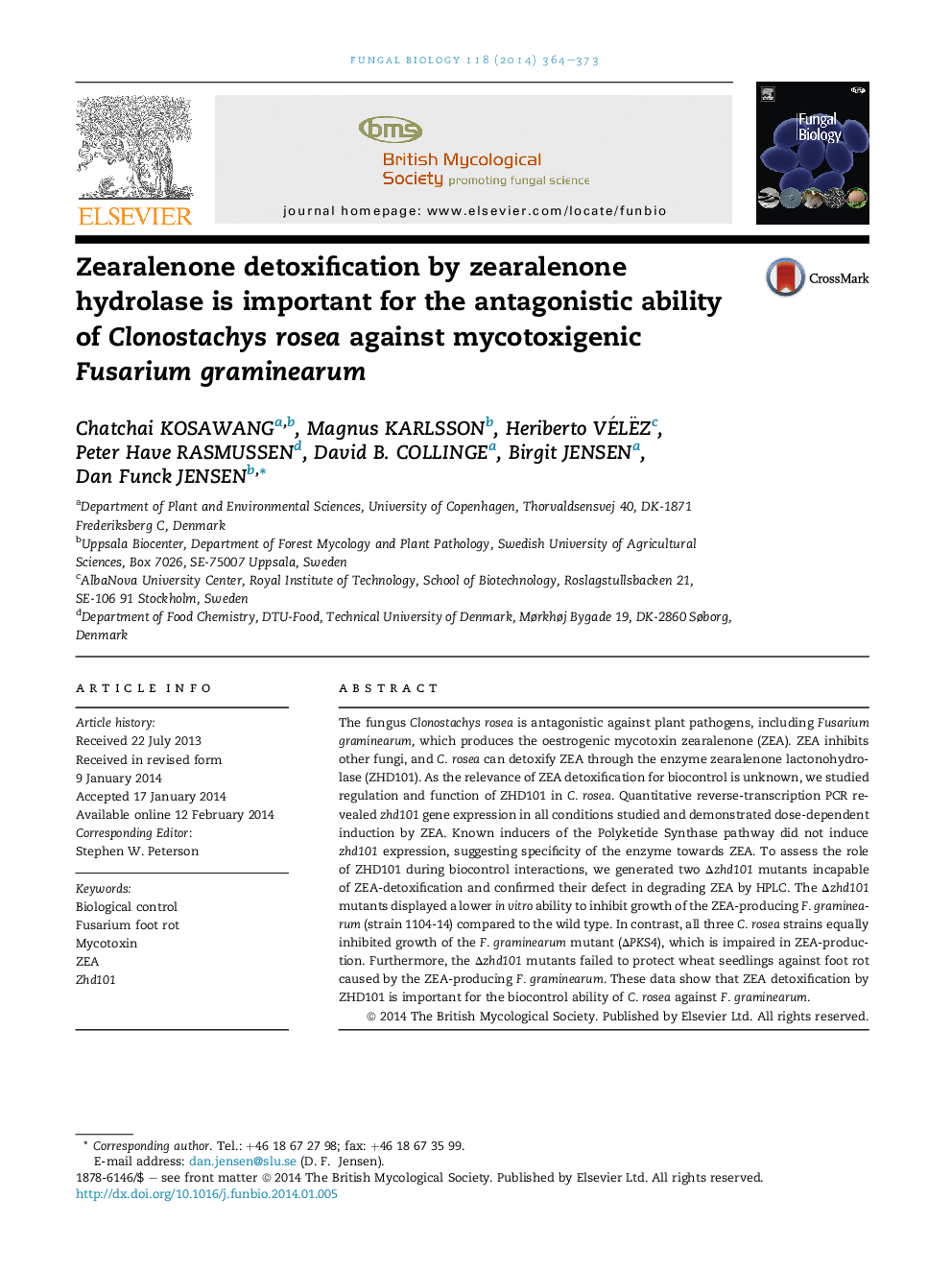| کد مقاله | کد نشریه | سال انتشار | مقاله انگلیسی | نسخه تمام متن |
|---|---|---|---|---|
| 4356897 | 1300010 | 2014 | 10 صفحه PDF | دانلود رایگان |

• The zhd101 gene in Clonostachys rosea is induced by ZEA mycotoxin from Fusarium spp.
• ZHD101 encoded by zhd101 in C. rosea is known to detoxify ZEA.
• zhd101 knock out mutants of C. rosea (Δzhd101) unable to detoxify ZEA were generated.
• Δzhd101 showed lower growth inhibition of plant pathogenic ZEA-producing Fusarium.
• Δzhd101 reduces C. rosea biocontrol effect on ZEA-producing Fusarium in plant assays.
The fungus Clonostachys rosea is antagonistic against plant pathogens, including Fusarium graminearum, which produces the oestrogenic mycotoxin zearalenone (ZEA). ZEA inhibits other fungi, and C. rosea can detoxify ZEA through the enzyme zearalenone lactonohydrolase (ZHD101). As the relevance of ZEA detoxification for biocontrol is unknown, we studied regulation and function of ZHD101 in C. rosea. Quantitative reverse-transcription PCR revealed zhd101 gene expression in all conditions studied and demonstrated dose-dependent induction by ZEA. Known inducers of the Polyketide Synthase pathway did not induce zhd101 expression, suggesting specificity of the enzyme towards ZEA. To assess the role of ZHD101 during biocontrol interactions, we generated two Δzhd101 mutants incapable of ZEA-detoxification and confirmed their defect in degrading ZEA by HPLC. The Δzhd101 mutants displayed a lower in vitro ability to inhibit growth of the ZEA-producing F. graminearum (strain 1104-14) compared to the wild type. In contrast, all three C. rosea strains equally inhibited growth of the F. graminearum mutant (ΔPKS4), which is impaired in ZEA-production. Furthermore, the Δzhd101 mutants failed to protect wheat seedlings against foot rot caused by the ZEA-producing F. graminearum. These data show that ZEA detoxification by ZHD101 is important for the biocontrol ability of C. rosea against F. graminearum.
Journal: Fungal Biology - Volume 118, Issue 4, April 2014, Pages 364–373